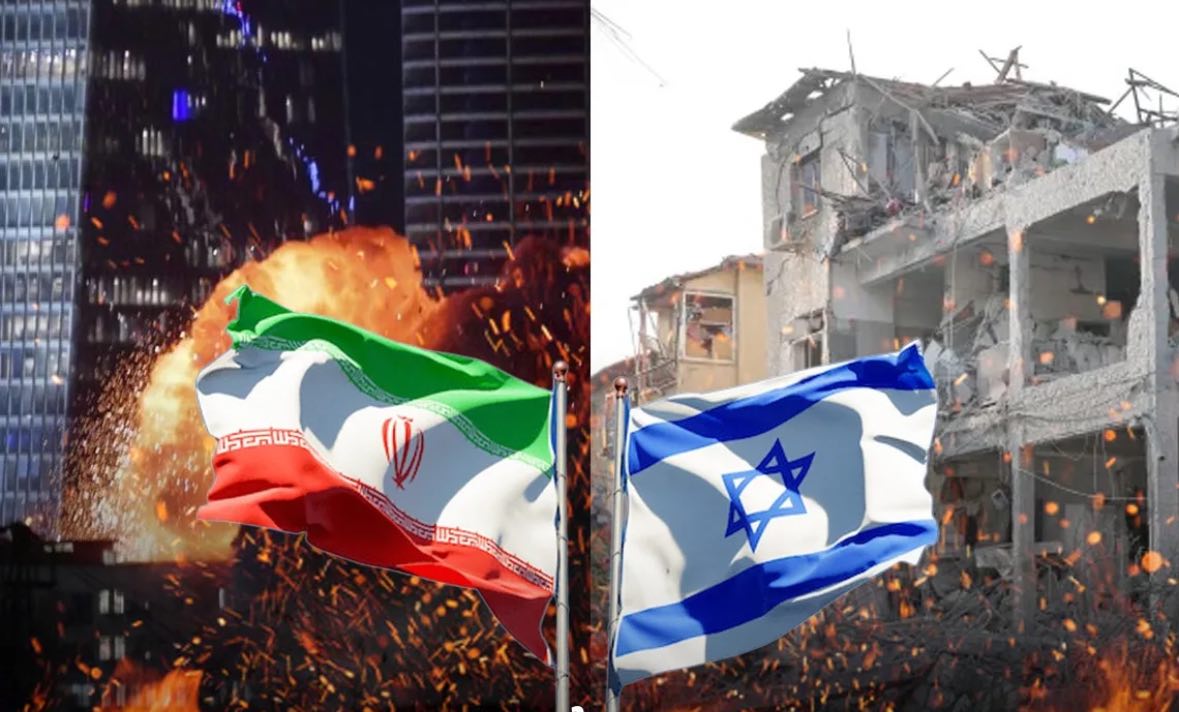The 12-Day War: A $500 Billion Bill for Iran and a $20 Billion Bill for Israel
The 12-Day War: A $500 Billion Bill for Iran and a $20 Billion Bill for Israel
According to IranGate News Agency, following the end of the 12-day war between Iran and Israel, initial assessments of the damage to the infrastructures of both countries have raised new concerns at the regional and international levels.
In this context, economic and security experts warn that the consequences of this conflict are not limited to physical destruction but also have long-term impacts on economic stability, foreign investment, and the geopolitical dynamics of the region.
Analysts believe that Iran is now facing an unprecedented challenge in economic reconstruction and financial resource management, a challenge that could overshadow the country’s developmental priorities for years.
Assessment of Economic Damages to Iran and Israel After the 12-Day War: A Warning of an Uncertain Future
Moshe Alad, a Middle East affairs analyst, claimed in an interview with Maariv newspaper that the cost of rebuilding Iran after the 12-day war with Israel could exceed half a trillion dollars.
He stated that this war occurred while Iran’s economy was already under pressure from international sanctions, widespread capital flight, and increasing investor distrust.
According to the Maariv report, even before these conflicts, the Iranian government felt an urgent need for foreign investment to rebuild the country’s vital infrastructures.
Tehran had estimated that more than $500 billion would be needed to modernize the power grids, transportation networks, roads, and outdated ports.
With the outbreak of war, these plans have been halted, and the government’s priority has shifted towards rebuilding the damage caused by the conflict.
Alad warns that the current situation could lead to the limited resources of the country, previously allocated for development projects and social services, now being used for emergency reconstruction.
At the same time, the government must adopt new political and economic measures to maintain domestic stability and reassure international players.
Destructive Impacts of the War on Iran’s Economy
According to Alad, the direct damage from the war for Iran was primarily focused on energy infrastructures and vital facilities.
He claims that during this conflict, Israeli missile attacks and cyber operations resulted in the destruction or disabling of at least 120 residential towers, power plants, and sensitive nuclear facilities.
Additionally, a nationwide internet disruption that occurred simultaneously with the final stages of the war caused damage amounting to over half a billion dollars to Iran’s economy.
This comes as Iran hoped to pave the way for its economic recovery by unfreezing its blocked assets, especially around $70 billion, and signing major energy contracts with countries like China, India, and Russia.
However, the international climate has become more cautious, and even Iran’s long-standing partners, including Beijing, have adopted a conservative approach in their economic interactions.
Diplomatic Reactions and Demands for Compensation
Meanwhile, Abbas Araqchi, Iran’s Foreign Minister, stated in an interview with the Financial Times that the United States should be held accountable for its indirect role in the war and its destructive effects on Iran’s economy and should compensate for the damages. However, Araqchi did not specify an exact figure in this regard.
In his analysis, Moshe Alad also points to the crisis of capital flight, reduced access to foreign financial resources, and increased domestic economic pressure.
He suggests that these trends might lead to a severe slowdown in Iran’s economic growth and further weakening of the country’s vital infrastructures.
What Were the War Damages for Israel?
On the other side of this war, Israel also faced heavy costs.
According to statistics published in Israeli media at the end of June, the country incurred direct damages of around $12 billion during the 12-day war with Iran.
These figures include military costs, infrastructure rebuilding, damages from missile attacks, and compensation to affected citizens and businesses.
Forecasts indicate that if indirect damages and civilian and insurance costs are taken into account, the final figure could reach around $20 billion.
New Military Requests Following the War
After the end of the conflict, the Israeli army also requested a budget allocation of over 40 billion shekels, approximately $12 billion, from the government to replenish its weapon reserves, purchase new interceptor missiles, and munitions.
This request follows two previous demands by the army, one for 10 billion and another for 30 billion shekels before the war began, indicating that Israel also needs a significant budget for military preparedness against future threats.
Analyses provided by Israeli sources offer a clear picture of the severe economic consequences of the recent war between Iran and Israel. Given Iran’s fragile economic situation and structural challenges, post-war reconstruction not only requires massive financial resources but also necessitates redefining domestic and foreign policy priorities.
Meanwhile, Israel, despite having greater economic and military capabilities, did not emerge from this conflict unscathed and is compelled to make extensive investments in the military sector to maintain its strategic superiority.

